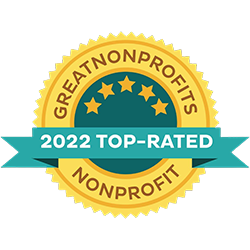Jun
4, 2018
SAVE THE DATE: Friday November 9th, 2018 - COMMIT’s Annual Changing the Narrative Gala
The COMMIT Foundation is pleased to announce that our 5th Annual Changing the Narrative Gala will be held the evening of November 9th, 2018 at The Four Seasons in Washington, D.C.
Much work remains to be done to bridge the military-civilian divide. COMMIT will gather with friends, supporters, veterans and servicemembers to celebrate our transitioning veterans and raise crucial funds to support COMMIT’s transition programs.
The team at COMMIT continues to work to ensure every program participant receives the tools they need to realize their personal and professional goals post-service. It is our privilege to do this work on behalf of a grateful nation.
COMMIT Annual Gala Sponsorship Packages:
PLATINUM LEVEL Donation Amount: $100,000.00 Sponsor Benefits: ‚óŹ Recognition as Lead Title Sponsor of Gala ‚óŹ 2 COMMIT Corporate Education workshops conducted onsite at sponsor‚Äôs offices to improve corporate strategic veteran initiatives to include hiring, empowering, retaining ‚óŹ Guests invited to attend private social engagement prior to VIP reception ‚óŹ Guests invited to attend VIP reception Leadership ‚óŹ Seating for 4 guests at Head Table ‚óŹ 2 Premium tables of 10 guests each ‚óŹ Opportunity to speak at the event ‚óŹ On Stage recognition ‚óŹ Premier logo placement on event collateral, including save the date invitation, signage, and event program ‚óŹ Premier logo placement on event website ‚óŹ Full-page ad on back cover of event program ‚óŹ Inclusion in Press Release
GOLD LEVEL Donation Amount: $50,000.00 Sponsor Benefits: ‚óŹ 1 COMMIT Corporate Education workshop conducted onsite at sponsor‚Äôs office to improve corporate strategic veteran initiatives to include hiring, empowering, retaining ‚óŹ Guests invited to attend VIP reception ‚óŹ 1 Premium table of 10 guests ‚óŹ On Stage recognition ‚óŹ Preferred logo placement on event collateral, including save the date invitation, signage, and event program ‚óŹ Logo placement on event website ‚óŹ Full-page ad in event program ‚óŹ Inclusion in Press Release
SILVER LEVEL Donation Amount: $25,000.00 Sponsor Benefits: ‚óŹ Guests invited to attend VIP reception ‚óŹ On Stage recognition ‚óŹ 1 Premium table of 10 guests ‚óŹ Name listed on event collateral, including save the date invitation, signage, and event program ‚óŹ Half-page ad in event program ‚óŹ Name listed on event website ‚óŹ Inclusion in Press Release
BRONZE LEVEL Donation Amount: $15,000.00 Sponsor Benefits: ‚óŹ Guests invited to attend event reception before dinner ‚óŹ 1 Premium table of 10 guests ‚óŹ Quarter-page ad in event program ‚óŹ Name listed on event website
PARTNER LEVEL Donation Amount: $10,000.00 Sponsor Benefits: ‚óŹ Guests invited to attend event reception before dinner ‚óŹ 1 table of 10 guests ‚óŹ Name listed in event program ‚óŹ Name listed on event website
Please contact Maggie Collins at maggie@commitfoundation.org for any additional information, questions or details.
Read More



